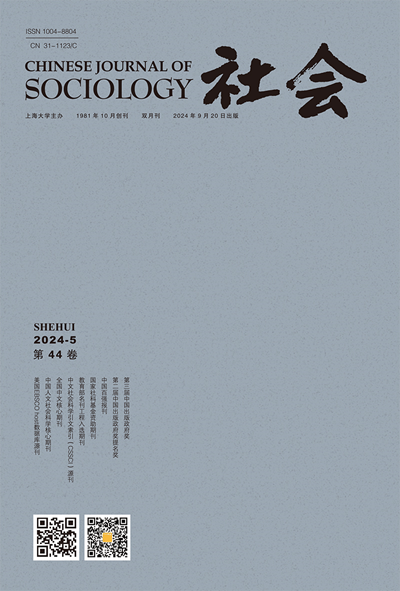Household income and child well-being in Japan: The role of grandparental coresidence and residential proximity
IF 1.8
4区 社会学
Q2 SOCIOLOGY
引用次数: 2
Abstract
In this study, we examined whether and how the income gradient in child well-being may vary by grandparental coresidence and proximate residence in Japan, a country characterized by a high prevalence of intergenerational proximity and intensive family investment in children’s development. Using data from the Japan Child Panel Survey, we first demonstrated that household income is positively associated with multiple dimensions of children’s well-being, a relationship that was particularly strong for cognitive skills. We also found that children from lower-income families were more likely to coreside with grandparents than their counterparts from middle- and higher-income families, and that children from both lower- and higher-income families had similar likelihoods of living near their grandparents. However, children in lower- and higher-income families who coresided with grandparents had lower math and Japanese test scores than those living at a distance. These relationships resulted in smaller income gradients in test scores for children coresiding with grandparents and near their grandparents, relative to those whose grandparents lived farther away. International comparisons showed that the income gradient in children’s academic performance is largest in the US and smallest in urban China, with Japan being in the middle, and that multigenerational coresidence is generally associated with worse cognitive outcomes for children in both lower- and higher-income families across these three very different contexts. These findings provide new insights into the complex ways in which intergenerational proximity is related to economic disparities in children’s well-being.日本家庭收入与儿童福祉:祖父母共同居住与居住距离的作用
在这项研究中,我们考察了在日本,儿童幸福感的收入梯度是否以及如何因祖父母的共同生活和近距离居住而变化。日本的特点是代际近距离和家庭对儿童发展的密集投资很普遍。利用日本儿童小组调查的数据,我们首先证明了家庭收入与儿童幸福感的多个维度呈正相关,这种关系在认知技能方面尤其强烈。我们还发现,与中高收入家庭的孩子相比,低收入家庭的儿童更有可能与祖父母住在一起,而低收入和高收入家庭中的孩子都有类似的可能性与祖父母住在附近。然而,低收入和高收入家庭中与祖父母站在一起的孩子的数学和日语考试成绩低于那些住在远处的孩子。与祖父母居住在更远的地方的孩子相比,这些关系导致与祖父母和祖父母住在一起的孩子的考试成绩出现较小的收入梯度。国际比较表明,儿童学习成绩的收入梯度在美国最大,在中国城市最小,日本处于中间,在这三种截然不同的情况下,低收入和高收入家庭的儿童的多代同堂通常与较差的认知结果有关。这些发现为代际接近与儿童福祉的经济差异之间的复杂关系提供了新的见解。
本文章由计算机程序翻译,如有差异,请以英文原文为准。
求助全文
约1分钟内获得全文
求助全文
来源期刊

社会
Social Sciences-Social Sciences (all)
CiteScore
1.70
自引率
0.00%
发文量
6799
期刊介绍:
The Chinese Journal of Sociology is a peer reviewed, international journal with the following standards: 1. The purpose of the Journal is to publish (in the English language) articles, reviews and scholarly comment which have been judged worthy of publication by appropriate specialists and accepted by the University on studies relating to sociology. 2. The Journal will be international in the sense that it will seek, wherever possible, to publish material from authors with an international reputation and articles that are of interest to an international audience. 3. In pursuit of the above the journal shall: (i) draw on and include high quality work from the international community . The Journal shall include work representing the major areas of interest in sociology. (ii) avoid bias in favour of the interests of particular schools or directions of research or particular political or narrow disciplinary objectives to the exclusion of others; (iii) ensure that articles are written in a terminology and style which makes them intelligible, not merely within the context of a particular discipline or abstract mode, but across the domain of relevant disciplines.
 求助内容:
求助内容: 应助结果提醒方式:
应助结果提醒方式:


